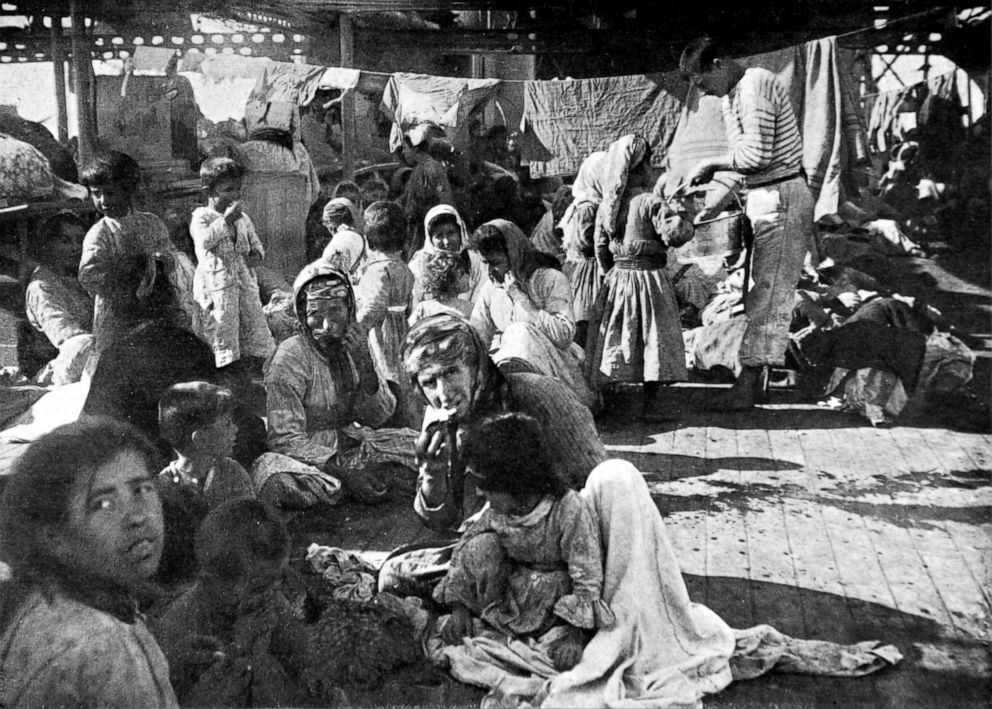Today, June 20, is World Refugee Day, an international day designated by the United Nations to honour refugees around the globe. It is a day set aside to celebrate the strength and courage of people who have been forced to flee their home country to escape conflict or persecution.
It is also an occasion to build empathy and understanding for their plight and to recognise their resilience in rebuilding their lives.
14.2% pilgrims airlifted, 10 days after commencement
Global nuclear disarmament is long overdue
In 2001, the UN marked the 50th anniversary of the 1951 Convention relating to the Status of Refugees. The UN General Assembly, therefore, decided that June 20 would be celebrated as World Refugee Day from 2001 onwards.
These refugees who flee from violence, conflict or persecution to cross an international border to find safety in another country often find themselves with little more than the clothes on their back, leaving behind homes, possessions, jobs and loved ones.
The United Nations High Commissioner for Refugees (UNHCR) estimated that the global refugee population has reached a new high in 2022, surpassing 30 million people. Nigeria is also home to refugees and asylum-seekers. Some 76,000 Cameroonian refugee men, women and children are registered in Akwa Ibom, Anambra, Benue, Cross River, Enugu, and Taraba states, due to the violence of the Ambazonian separatist group among others.
Indeed, the refugee crisis, in its eight year in 2022, saw some Nigerians fleeing northeastern Nigeria due to violence and terrorism with most of them being women and children. According to UNHCR, these refugees flee their homes and comfort because they fear for their lives after threats of revenge and intimidation following militant attacks.
The number of Nigerians fleeing to neighbouring countries of Chad, Cameroon and Niger has been on an increase such that at the end of January 2022, the number of Nigerian refugees that had fled to Chad, Cameroon and Niger was 328,005 which represents a 642.46 per cent increase from January 2015.
Minister of Humanitarian Affairs, Disaster Management and Social Development, Sadiya Farouq, said over 330,000 Nigerian refugees are languishing in neighbouring countries due to terrorism and armed banditry in the North East and North West region. According to her, 16,634 are in Chad, 118,409 in Cameroun, while Niger Republic has 186,957.
It is a good thing that such a day has been set aside to indeed look at the plight of refugees with a view to working to make their lives better. It is hoped that this day is not just ceremonial, but that it awakens in all humanity the need to make lives better for persons in this group.
What is immediately required is for the rights of all refugees as contained in the 1951 Convention to be respected by all. They include; The right not to be expelled, except under certain, strictly defined conditions; The right not to be punished for illegal entry into the territory of a contracting state; The right to work; The right to housing; The right to education; The right to public relief and assistance; The right to freedom of religion; The right to access the courts; The right to freedom of movement within the territory; and the right to be issued identity and travel documents.
A core aspect of the UN Convention on Refugees is non-discrimination on the basis of race, ethnicity, gender, religion or nationality. In practice however, many European countries routinely discriminate against refugees from Africa and the Middle East. This is a time for review. All countries that are signatory to this convention must review their attitude and make amends where necessary.
Today should serve as a wakeup call to all countries, especially the West to work hard to avert crises that lead to people leaving their homes and country. All hands should be on deck to address and stop the Russia/ Ukraine war which has already made so many Ukranians refugees.
In Nigeria, like every other country, the underlying causes of the forced flight of citizens as refugees must be addressed. More should be done in the areas of terrorism and banditry. The general insecurity situation must be tackled squarely and it must go beyond mere speeches. We commend the government, especially that of Borno State, for its efforts to return some Nigerians who had fled to neighbouring Chad due to insurgency and urge it to continue in its efforts to ensure that everyone returns. We also urge it to ensure that the right security infrastructure is on ground so that returnee refugees don’t suffer double jeopardy. The urgency of the situation demands accelerated security operations.
There should be concerted efforts by the federal government to ensure that all Nigerian refugees are brought back home. Towards this, there should be adequate housing for them. In fact, the federal and state government agencies should build new cities for them.
The federal government intervention agencies must work with international NGOs to ensure that the returnee refugees gain decent employment through interventions such as vocational training. They should be trained in new trades while farmers should be helped with farming tools so that all eligible adults would be able to sustain themselves in their new abode. There must be a conscious effort by all towards having a world where no one is forced to leave his/her home.

 Join Daily Trust WhatsApp Community For Quick Access To News and Happenings Around You.
Join Daily Trust WhatsApp Community For Quick Access To News and Happenings Around You.


